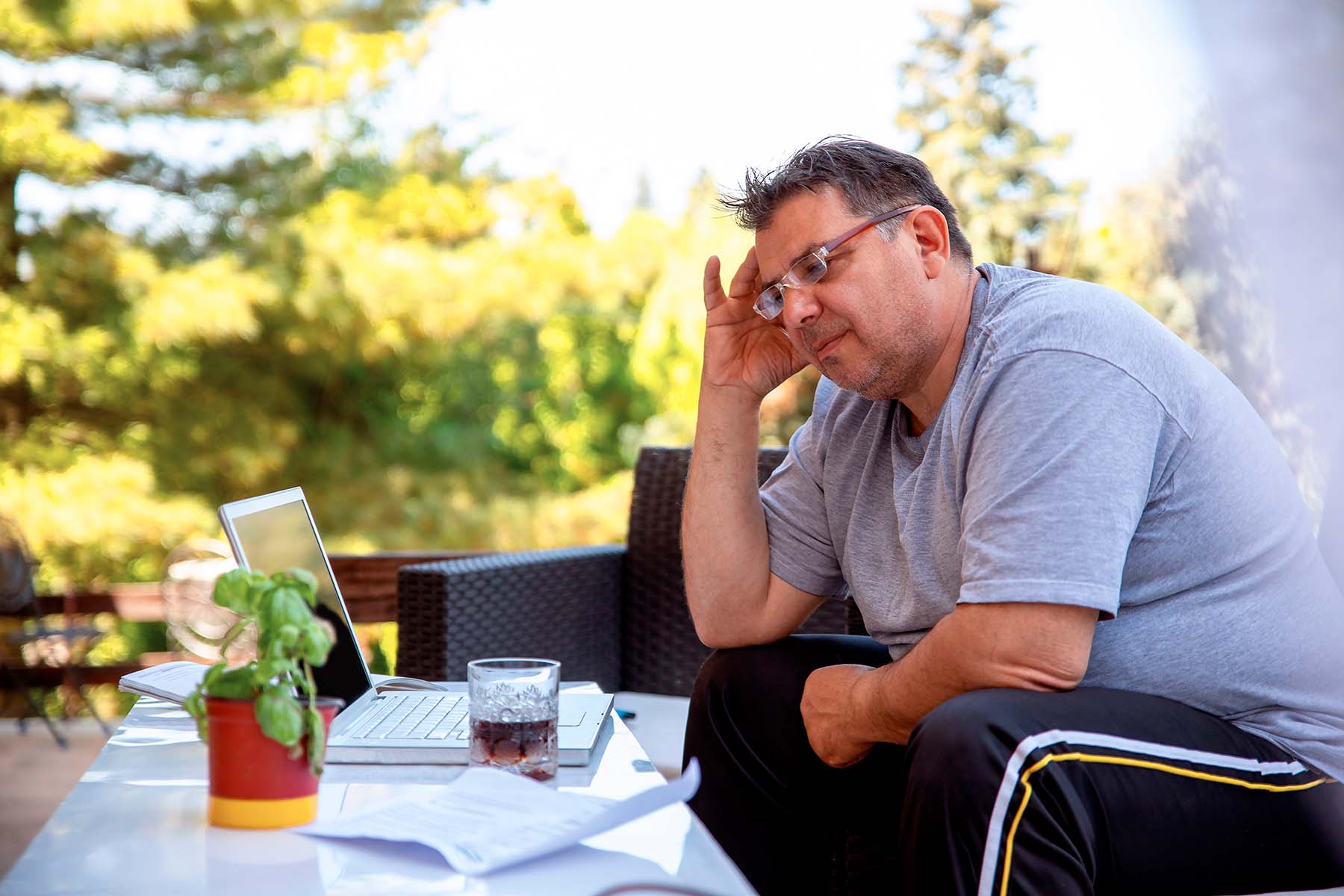Is Male Menopause a Real Thing?

Male menopause — a description for the symptoms that can affect men of a certain age — is real, but it’s not necessarily what popular culture makes it out to be. Nevertheless, the term is popular because it provides an easy comparison to women’s change of life.
“People like to think of it as a parallel to what women go through in menopause,” says Thomas A. Masterson, M.D., a urologist with the University of Miami Health System. “But it’s not the equivalent for men.”
Male menopause has a different pathology, and it’s not as clearly defined. For example, a woman enters menopause 12 months after her last period, when her ovaries stop producing estrogen and no longer release eggs. This marks the end of her fertility.
Men, on the other hand, “produce sperm and can father a child until they die,” Dr. Masterson says. In other words, a man’s fertility is not affected by this change of life.
That said, as men age, they, too, undergo hormonal changes, however different they may be from changes in women. Male menopause is simply a popular way of describing a true medical diagnosis known as testosterone deficiency or low testosterone.
Men begin to experience a drop in testosterone as early as their 30s and 40s.
That is when hormone levels begin to drop about 1% to 3% a year. Unlike all women who go through menopause eventually, not all men will develop low T. In fact, most don’t. Once they reach their 60s and 70s, only about 10% to 30% percent of men meet the clinical threshold for the diagnosis, Dr. Masterson said.
Normal testosterone levels, when measured in the blood, range between 300 and 750 nanograms per deciliter (ng/dL). When it falls below the floor of 300, it is considered a testosterone deficiency. “It’s not so much about the numbers but the symptoms,” Dr. Masterson says. That’s usually what brings the men in for a medical evaluation.
Testosterone deficiency symptoms include low libido, weak erections, low energy, and weight gain.
Some men also report having trouble focusing and putting on muscle even when they exercise. Those signs, however, are also typical of other conditions such as diabetes, obesity and chronic stress. That’s why it’s so important for a man to consult his primary care physician for evaluation.
“You have to tease it out,” Dr. Masterson says. “Is it low T or something else or both? We know that low testosterone tends to go with other underlying conditions.”
Several health conditions can lead — and exacerbate — low T.
Weight is one of them. Men who are obese are five times more likely than non-obese men to develop low T. A physician must determine if low testosterone is the cause of weight gain or if the extra weight is the cause of low T.
Sleep apnea and diabetes also contribute to the lower nocturnal secretion of testosterone in older men. Poor sleep has been shown to lead to low T levels, and men with type 2 diabetes are twice as likely as men without diabetes to suffer from low testosterone. Knowing if a patient has these conditions helps the urologist determine treatment.
“We look for medically reversible conditions,” Dr. Masterson says. “If we can rule those out, the option is to replace [testosterone].”
While “low testosterone is highly unlikely to kill you,” he adds, most patients are eager to get some form of treatment. “It’s the symptoms that bother them. What troubles them most is their low libido and erectile dysfunction. They feel sort of emasculated.”
When to treat and how much to treat symptoms of low-T is a discussion that men should have with their doctors.
Dr. Masterson tells his patients there are side effects to treatment that a patient should consider, especially since treatment is usually for life. Risks of hormone replacement therapy include blood clots, high blood pressure, acne, worsening male pattern baldness, and the risk of prostate cancer.
Most men, he says, opt for hormone replacement therapy anyway. Treatment comes in gels, patches, oral medications and injections. Patients tend to prefer injections because it’s the often the most reliable way of getting the drug into the body.
Though treatment is effective, Dr. Masterson says it can lower sperm production and fertility.
“They need to consider this if they want to have children,” he says.
Dr. Masterson also recommends changes in lifestyle – healthier diet and exercise – which can prevent the co-morbidities that lead to low T. He also points out that, contrary to the misinformation found on social media, “a vegetarian diet does not decrease testosterone. It is not a factor at all.”
He also has one more word of caution for young men who are using testosterone inappropriately because they believe their levels are low for their age.
Most men on injectable T will experience low sperm production.
Though this may be reversible, “it can lead to infertility,” he warns, adding that 6 out of 10 men will stop making testosterone altogether.

Ana Veciana-Suarez is a regular contributor to the University of Miami Health System. She is a renowned journalist and author who has worked at The Miami Herald, The Miami News, and The Palm Beach Post. Visit her website at anavecianasuarez.com or follow @AnaVeciana on Twitter.
Tags: decline in testosterone, Dr. Thomas Masterson, symptoms of low testosterone, symptoms of male menopause
